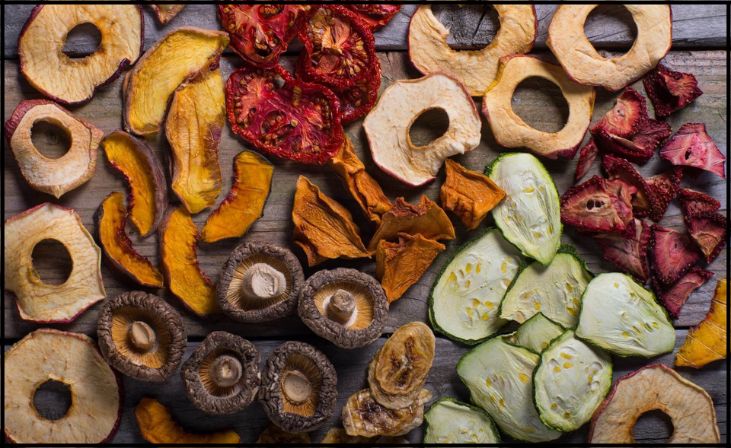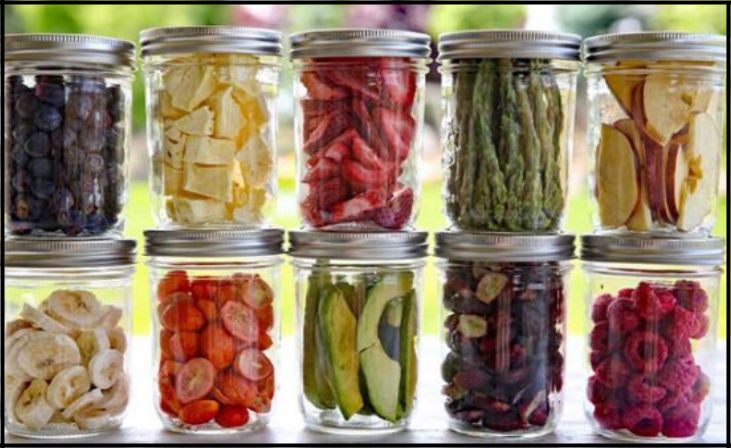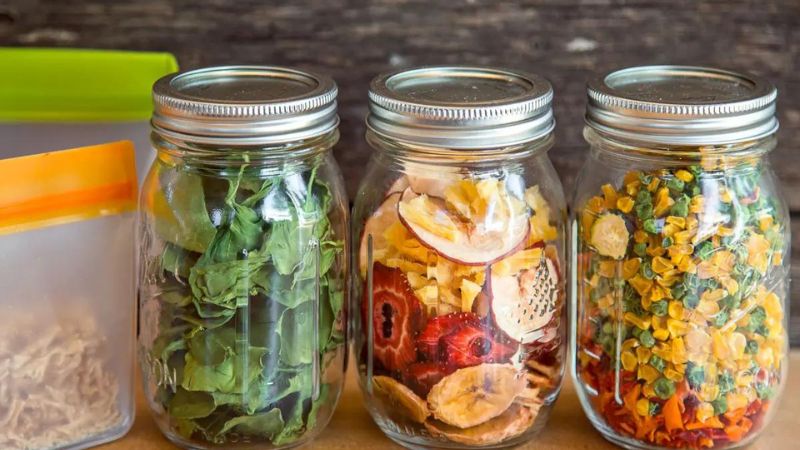1. Dehydrating Foods
Dehydrating food involves removing moisture from fruits, vegetables, and other food items to inhibit the growth of bacteria, yeast, and mold, thereby preserving them for longer periods.
2. Benefits of Dehydrating Foods

Dehydrated foods retain most of their nutritional value, including vitamins, minerals, and antioxidants, while offering the convenience of easy storage and portability. They are also lightweight and make excellent snacks for outdoor activities like hiking and camping.
3. Preparation Tips for Dehydrating Foods
Before dehydrating foods, it’s essential to wash, peel, and slice them uniformly to ensure even drying. Using a mandoline slicer or a sharp knife can help achieve consistent thickness, promoting uniform dehydration.
4. Best Foods to Dehydrate

Bananas
Sliced bananas soaked in citrus water are dehydrated until chewy, creating homemade banana treats.
Apples
Thinly sliced apples soaked in citrus water maintain their color and texture when dehydrated, resulting in delicious dried apple rings.
Strawberries
Hulled and sliced strawberries are dehydrated until chewy, offering sweet and tangy dried fruit snacks.
Mangoes
Peeled and sliced mangoes are dehydrated into flavorful mango strips, reminiscent of tropical sunshine.
Pineapple
Sliced pineapple pieces, dehydrated until chewy, make visually stunning and delicious snacks.
Tomatoes
Thinly sliced tomatoes, dehydrated and used in various dishes like pasta and salads, add a burst of flavor.
Sweet Potatoes
Sliced sweet potatoes blanched in boiling water and dehydrated become crave-worthy dried snacks.
5. How to Dehydrate Foods
To dehydrate foods, use a food dehydrator or an oven set to a low temperature. Arrange the prepared food items in a single layer on dehydrator trays or baking sheets lined with parchment paper, then dry them until they reach the desired consistency.
6. Storing Dehydrated Foods
Store dehydrated foods in airtight containers or vacuum-sealed bags in a cool, dry place away from direct sunlight. Properly stored, dehydrated foods can last for months or even years without losing their quality.






